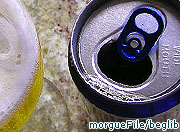A ban on selling cheap alcohol will come into force in England and Wales from 6 April, the Home Office has said.
The move seeks to stop heavy discounting in stores that has in the past resulted in lager being sold more cheaply than water.
But some campaigners have called the plans “laughable” and “close to impossible to implement”.
Prices
Supermarkets are currently able to sell alcohol below-cost – which is defined as duty plus VAT.
The ban will mean that stores will only be able to sell alcohol at a minimum price, worked out using a formula.
This will include selling a 440ml can of beer at 50p and a bottle of 13.5% wine for £2.24.
Exceptions
Exceptions to the rule will include low-strength beers with an alcoholic content of less than 1.2%.
Crime prevention minister Norman Baker said: “The coalition Government is determined to tackle alcohol-fuelled crime, which costs England and Wales around £11 billion a year.”
But an assessment carried out by the Home Office concluded that the ban would only cause a 0.04 per cent reduction in consumption.
Laughable
Eric Appleby, Chief Executive of Alcohol Concern, said the idea of the ban tackling “our problems with alcohol is laughable, it’s confusing and close to impossible to implement”.
Last summer the Government u-turned over its plans to set a minimum price per unit of alcohol at 45p.
At the time minister Jeremy Browne told BBC News that the proposal would remain “under consideration” but there were fears the change would hit responsible drinkers.
Savings
The ban will be enforced by licensing authorities, Trading Standards and the police.
It is estimated to save the NHS £5.3 million a year in addition to £3.6 million from fewer alcohol induced crimes.
Baker said: “Banning the sale of alcohol below duty plus VAT will stop the worst examples of very cheap and harmful drink.”

